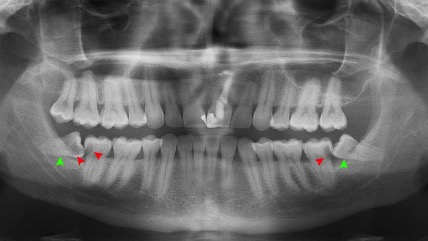The thought of removing wisdom teeth is often met with some degree of trepidation. This is because of its perceived difficulty associated with this mysterious tooth.
In this column, we will discuss the dreaded wisdom tooth and answer the question, should I have my wisdom teeth removed?
One does not have to fear having your wisdom teeth removed. The removal of a wisdom tooth (or third molar) is one of the most common dental surgical procedures.
Here are several important facts about wisdom teeth:
- Your dentist should examine and look for wisdom teeth between the ages of 17 to 21 years old. This should involve taking a Panoramic x-ray and/or a 3D scan.
- Your dentist may recommend that your wisdom teeth be removed if it causes pain or infection, crowd other teeth or are stuck (impacted) under the gums.
- Most dentists and oral surgeons think it’s best to have impacted wisdom teeth removed by age 21, because it’s easier to take them out when the roots and bones of your teeth are softer and not fully formed. Also, when you’re younger you tend to heal faster.
- You may never have problems with your wisdom teeth, especially if you’re already older than 30 and have not had a problem thus far.
- Many healthy wisdom teeth come into the mouth causing no discomforts at all.
Wisdom teeth are the four upper and lower 3rd molars located at the very back of the mouth. They are the last teeth to surface in the mouth. They are called wisdom teeth because being the last teeth to emerge around 17 to 21 years old—old enough to have gained some “wisdom.”
If your jaw is not large enough to make room for your wisdom teeth, they may get stuck in your jaw and unable able to get through your gums. This is called an impacted wisdom tooth. An impacted tooth can crowd other teeth creating a painful, swollen and infected covering in your gums.
Wisdom teeth that have barely broken through the gums may cause cavities and gum disease, primarily because they are hard to clean. Sometimes, an infected cyst can develop around wisdom teeth that can damage the underlying bone or roots of other teeth.
As one gets older, the bones around the teeth grow and get dense making it harder to remove. Also, when you’re older it may take longer for the area to heal after removing wisdom teeth.
An experienced dentist or oral surgeon should remove your wisdom teeth to avoid or minimize complications.
Problems that may occur if wisdom teeth are not removed include the following:
- Impaction of the wisdom teeth are common when there is inadequate room for the wisdom teeth to come in.
- A common occurrence is when a wisdom tooth just partially pokes through the gums, causing a flap of gum tissue to cover a piece of the tooth. Food, plaque and debris usually get trapped under the flap causing a severe infection.
- Wisdom teeth may come into the mouth at the wrong angle. The tooth could be facing forward, backward and even straight up and crowded.
- Impacted wisdom teeth can cause infection and damage to other teeth and bones. A sac can develop around the roots which contain fluid and sometimes pus.
- It is harder to brush and floss when you keep your wisdom teeth, especially when a tooth is impacted contributing to cavities and gum disease.
No need to wait for a regular dental checkup. Seek an opinion from your dentist as soon as possible. These dental challenges can be proactively determined and treated early where necessary.
Dr. Kendal V. O. Major is Founder and CEO of Center for Specialized Dentistry which is a comprehensive family dental practice operating in Nassau and Freeport. He is the first Bahamian Specialist in gum diseases and dental implants since 1989. He also is a certified Fast braces provider. His practice is located at 89 Collins Avenue, Nassau at (242)325-5165 or [email protected]

Panoramic X-ray- The Lower wisdom teeth (3rd molars) leaning forward causing a
food trap and cavities on the 2nd molars

Impacted wisdom tooth leaning forward

Flap of tissue partially covering the wisdom tooth. Circled area behind is infected





